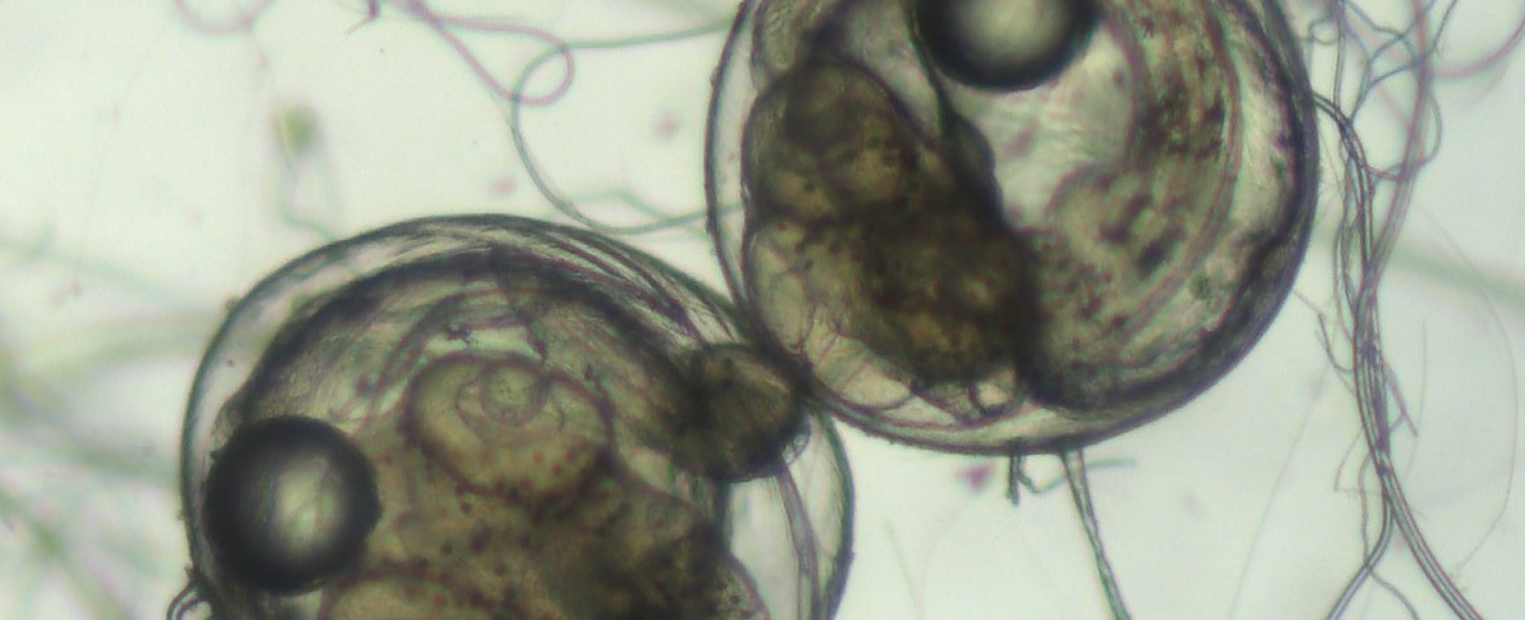Associate professor of biology, Marlo Jeffries, and co-PI Dalton Allen (M.S. Biology 2021, Ph.D. Biology 2024) were awarded a $10,164 grant from the American Association of Laboratory Animal Sciences (AALAS) to support portions of Allen's dissertation work that aims to determine whether toxicological tests that feature marine fish embryos or invertebrates can replace those that use marine fish larvae.
AALAS is an association of professionals employed around the world in academia, government, and private industry who are dedicated to the humane care and treatment of laboratory animals, as well as the quality research that leads to scientific gains that benefit people and animals.
Allen says the purpose of this research is to improve the welfare of fish utilized in marine toxicity testing through the development of more humane alternative methods. “Mainly, we are working towards developing tests utilizing fish embryos, as previous research has indicated that they are less prone to stress and pain than their older counterparts currently used in toxicity testing,” he says.
There are several areas that this AALAS grant money has been, or will be, applied over the course of this study. Mainly, it will be used for the purchasing of supplies for supporting and maintaining our animal populations, single-use items, as well as chemicals needed to perform toxicity tests and analytical chemistry supplies for verifying test concentrations.
“The use of fish embryos in place of fish larvae in toxicity testing is considered to be more protective of animal welfare. In fact, the European Union considers toxicity tests that use fish embryos to be ‘non-animal’ tests,” Jeffries says. “Through toxicity testing, we can uncover the potential risks associated with chemicals so that we can better regulate their use in consumer goods, agricultural products, and pharmaceuticals.”
Learn more about what’s happening in TCU’s department of biology and the American Association of Laboratory Animal Sciences.
